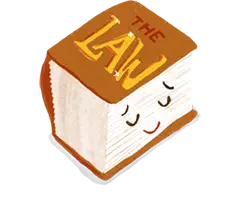Work and jobs
This page contains different parts of laws about Work and jobs.

Important laws about Work and jobs
Court Martial Act 2007
Judges can't have other paid jobs without permission
17: Judges must not hold other offices
Court Martial Act 2007
When Court Martial Judges have to retire because of their age
19: Age of retirement
Court Martial Act 2007
The Registrar picks fair military members for a Court Martial, considering your rank and job.
24: Registrar must consider other factors in assigning military members
Court Martial Act 2007
Other country's officers can help in New Zealand military trials in certain situations.
25: Officers of other forces may be assigned as military members in certain circumstances
Court Martial Act 2007
Not going to Court Martial without a good reason can get you in trouble
32: Failure to attend Court Martial is contempt of court
Court Martial Act 2007
Senior military member must write a report on command problems
34: Senior military member must submit report on command issues
Court Martial Act 2007
The court can't use info about a military member's behaviour to affect their job.
35: Prohibition on taking into account information about conduct of military members
Court Martial Act 2007
What happens when a military member is discharged from a court martial
48: Discharge of military members
Court Martial Act 2007
Rules for proof of surrender or arrest for desertion or absence without leave
74: Limits on application of section 71: evidence of surrender, arrest, or delivery to service custody in relation to charge of desertion or absence without leave
Court Martial Act 2007
What happens to your court case if the Court Martial Act 2007 starts before your trial
84: What happens if court-martial has not yet been convened on commencement of this Act
Weights and Measures Act 1987
What inspectors need to know about their job certificates
27: Certificates of appointment
More laws about Work and jobs
About this project
What is this project?
How do we do this?
Why is the law written like it is?
Should we use AI for this?
Is this information the actual law?
You can talk to Community Law or Citizen's Advice Bureau about your rights.
Remember that AI can make mistakes, and just reading the law isn't enough to understand how it could be used in court.




